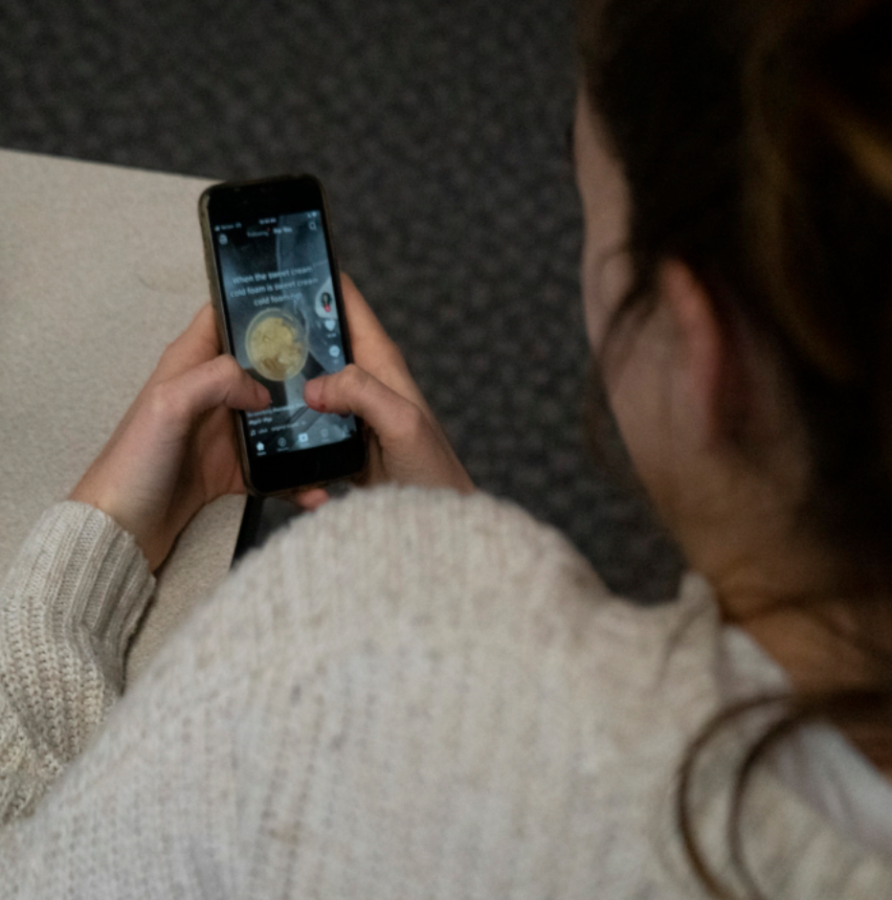Endless scrolling on TikTok tanks CHS students’ productivity
BLOT PHOTO BY KATHERINE MANATOS
Many students struggle to manage their time when Tiktok’s endless scrolling feature makes for an easy way to spend hours on social media.
April 14, 2022
TikTok has recently been shown to have adverse effects on students’ work ethics and, more importantly, their mental health.
Students can find themselves on their phones for hours, procrastinating their schoolwork by way of the app’s feature of an endless stream of videos catered to the user.
Sophomore Kaitlin Brice of Wall Township has found that TikTok can frequently get in the way of her schoolwork, causing her to hinder time where she could be getting work done.
“I can remember many times when Tiktok has gotten in the way of my homework,” Brice said. “I would always tell myself I was taking a 5-minute break, but it would quickly turn into a half-hour.”
Even good students can struggle with finishing their homework when the option of infinite scrolling is present.
In a survey taken by 1,500 undergraduate students by an app called Stop Procrastinating, 74% admitted to being distracted by the internet when trying to do schoolwork. Junior Maddie Lee of Red Bank is one of the majority who find themselves struggling with staying off of social media when trying to do schoolwork.
“Whenever I open my phone I usually check Instagram or Snapchat and end up going down a rabbit hole without even realizing,” Lee said. “I’m usually pretty good at prioritizing my schoolwork, but it can be hard to resist procrastinating when I’m on my phone.”
Furthermore, TikTok, as well as other social media platforms, can negatively impact the mental health of users. According to TikTok, 77% of users say they read comments on posts and videos they see on the app. With any user being able to post practically anything, people are subject to viewing harmful content, such as edited pictures or even misinformation in posts or comments. Although this content may be fake, many people often believe what they see or hear.
Sophomore Cayla Carlson of Neptune explains that beauty standards are an ongoing issue on social media and especially on TikTok.
“It can make people think that what they’re seeing is normal and that they should look like that too,” Carlson said.
This can inherently be harmful, especially to younger kids who are very impressionable. These standards are a pressing issue on TikTok, as many parents do not recognize the negative side of the app and often allow their young kids access to it where they can see vast differences between the teenagers on their screens and the ones they interact with in their daily lives. The content they see has the potential to pressure them to make changes to their appearance and can even cause harm.
According to TubeFilter, 0.3% of teenagers on TikTok believe that they have participated in viral challenges that they consider to be very dangerous. Although this may not seem like a lot, consider that millions of teenagers use this platform and that these numbers can add up to be in the thousands.
“I think a lot of people can easily be discouraged by comparing themselves to people they see on TikTok,” Lee said. “A lot of people forget that it isn’t really realistic, and that they shouldn’t be stressing over changing themselves to fit a societal norm that social media has created.”





